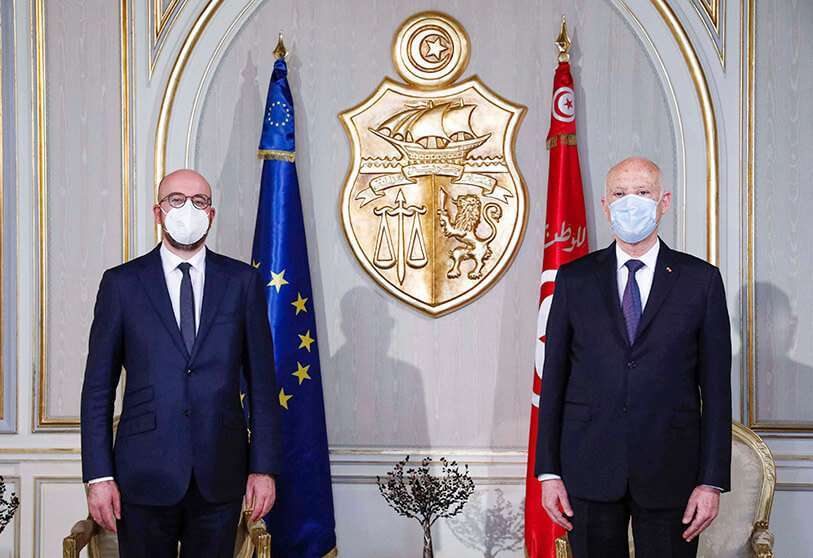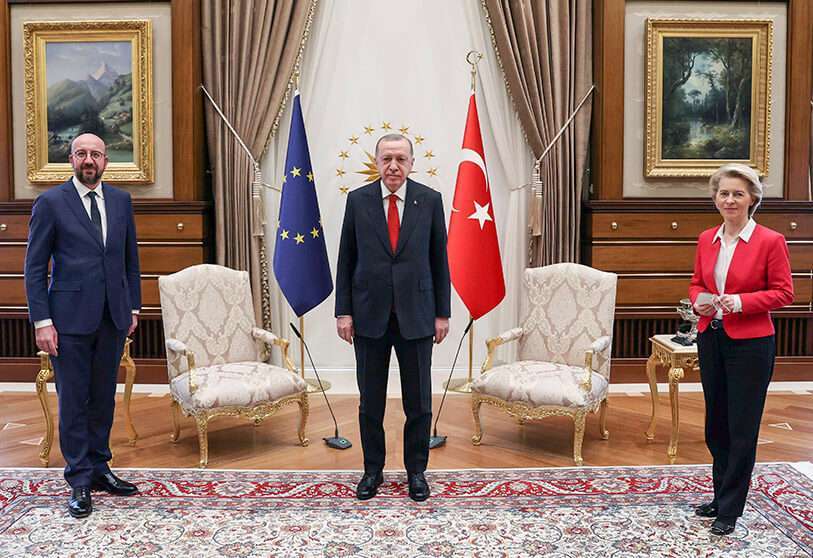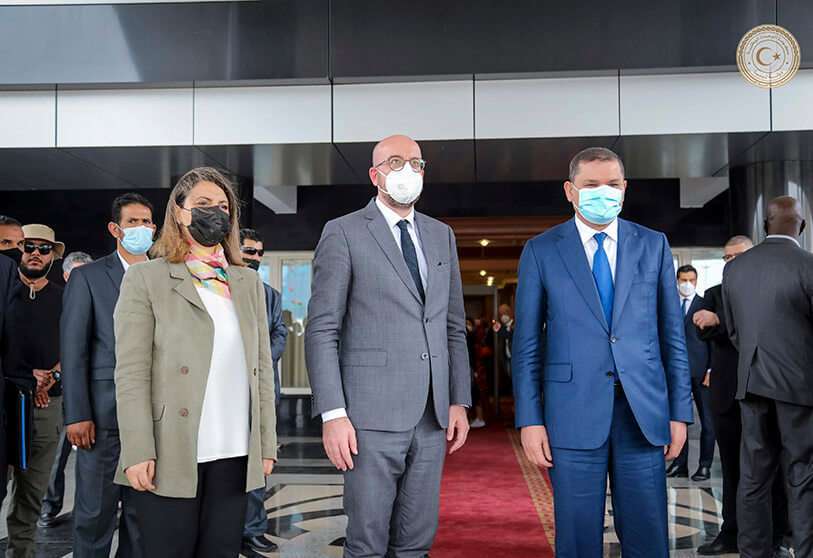European Union seeks to normalise relations in the Eastern Mediterranean

In recent months, the Eastern Mediterranean region has become a focus of tension not only with the European countries that are located there, such as Greece and Cyprus, with which disagreements are more common, but also with others that are less so, such as France and Germany. Turkish interference in the Libyan conflict, over which there is a European mission to ensure compliance with the arms embargo, has led to several clashes between the Turkish navy and the French and German navies. Since then, the rhetoric between the Turkish leader and the French president has escalated, causing a major problem within NATO and, to a lesser extent, the European Union.
Moreover, tension between Greece and Turkey has also been growing over the past 2020s, due to Turkish interests in accessing areas where hydrocarbons are accumulating, but which are in waters that Greece and Cyprus consider their own and which Turkey disputes. Both Greece and France led the call for sanctions against the Erdogan regime at the EUCO in December.
The serious situation facing Turkey's economy has forced Erdogan to backtrack and put aside the fraternal rhetoric of recent months in order to seek a return to normality in relations with the European Union. To demonstrate this rapprochement, the President of the European Commission, Ursula von der Leyen, and the President of the European Council, Charles Michel, are meeting with the Turkish President, Recep Tayyip Erdogan, in Ankara to try to normalise the tense bilateral relations, in a meeting with a full agenda, from migration to the search for gas in the Mediterranean. The trip by the presidents of the European Council and the Commission is seen as the start of a process that, according to the wishes of the EU-27, could enable relations between the EU and Turkey to be put back on track after a very complicated 2020.

Charles Michel also conveyed the EU's support for Libya and Tunisia, two countries repeatedly hit by terrorism and the origin or transit of powerful migratory flows towards European soil. The president of the European Council also stressed the need to respect the arms embargo after the EU naval operation (Irini) has intercepted Turkish vessels suspected of violating the UN embargo in recent months. EU sources stress that Michel was the first international leader to visit Tripoli since the formation of a National Unity Government that aims to end nearly 10 years of instability and civil conflict.
Michel's Mediterranean tour included Tunisia, where the uprisings of the so-called Arab Spring began and which a decade later is trying to move forward with a fragile democracy. The EU has been trying to contribute to Tunisia's stability, with €3 billion in financial assistance since 2011. Tunisia is a key player in EU migration policy, as the EU seeks agreements with North Africa to regulate migration flows from or through the region.
The EU-27 are also aware that Ankara can be a decisive ally in the face of rising tensions with China and Russia. The EU leaders note that 'as long as the current de-escalation dynamic is maintained', the EU will be willing to engage with Turkey 'in a more progressive and proportionate manner' with the aim of 'enhancing cooperation in a number of areas of common interest'.

The visit comes weeks after a European summit at which EU leaders agreed to preserve a positive agenda towards Turkey, on condition that Turkey maintains a dialogue-oriented approach in the Eastern Mediterranean, especially in its relations with Cyprus and Greece.
In this note, Turkey underlined the importance of the meeting by stressing that 'all aspects of Turkey-EU relations', as well as international issues, will be discussed. Also on the agenda is the renewal of the migration pact agreed in 2016, by which Turkey undertook to take back Syrian refugees arriving in Greece from its territory, and which in practice has served to block the flow of migrants to Europe from that region.
The situation within the European Union is more complicated than it seems. Ankara has a wild card that it has not hesitated to use on other occasions, and that is blocking the eastern Mediterranean migratory route, easing the migratory pressure that Greece has suffered in recent years. Turkey, in exchange for substantial economic aid - vital, given the country's situation - is in charge of managing part of this influx of migrants, preventing them from reaching EU soil and avoiding the repetition of harsh political discussions within the institutions.

The aforementioned migration policy is not the only issue that Ankara has the EU on tenterhooks. Germany has almost three million people of Turkish origin, so the relationship between Berlin and Ankara also has a certain domestic connotation that prevents the country from dealing freely with issues such as the application of sanctions. However, the interception of a Turkish ship by German troops under the umbrella of Operation Irini recently has raised the tone of discourse between Germany and Turkey.
Turkish analysts have stressed the importance of this meeting for both Brussels and Ankara, pointing out that despite the deterioration of relations and the many open fronts, Turkey continues to insist on its goal of joining the European Union, which is opposed by several EU countries.
Another of the issues expected to be discussed is the exemption of visas for Turkish citizens travelling to the EU, one of Ankara's main aspirations in its relations with Brussels and which was raised as a counterpart of the migration agreement. Moreover, visa liberalisation has been conditional since 2018 on Ankara's recognition of the Republic of Cyprus, which means that political convergence in this regard is increasingly unlikely.
The EU is aware of its difficult relationship with Turkey and its potential setbacks, but it is also pragmatic in assessing the current political climate, where the Eurasian country can play a decisive role in alliance-building.










